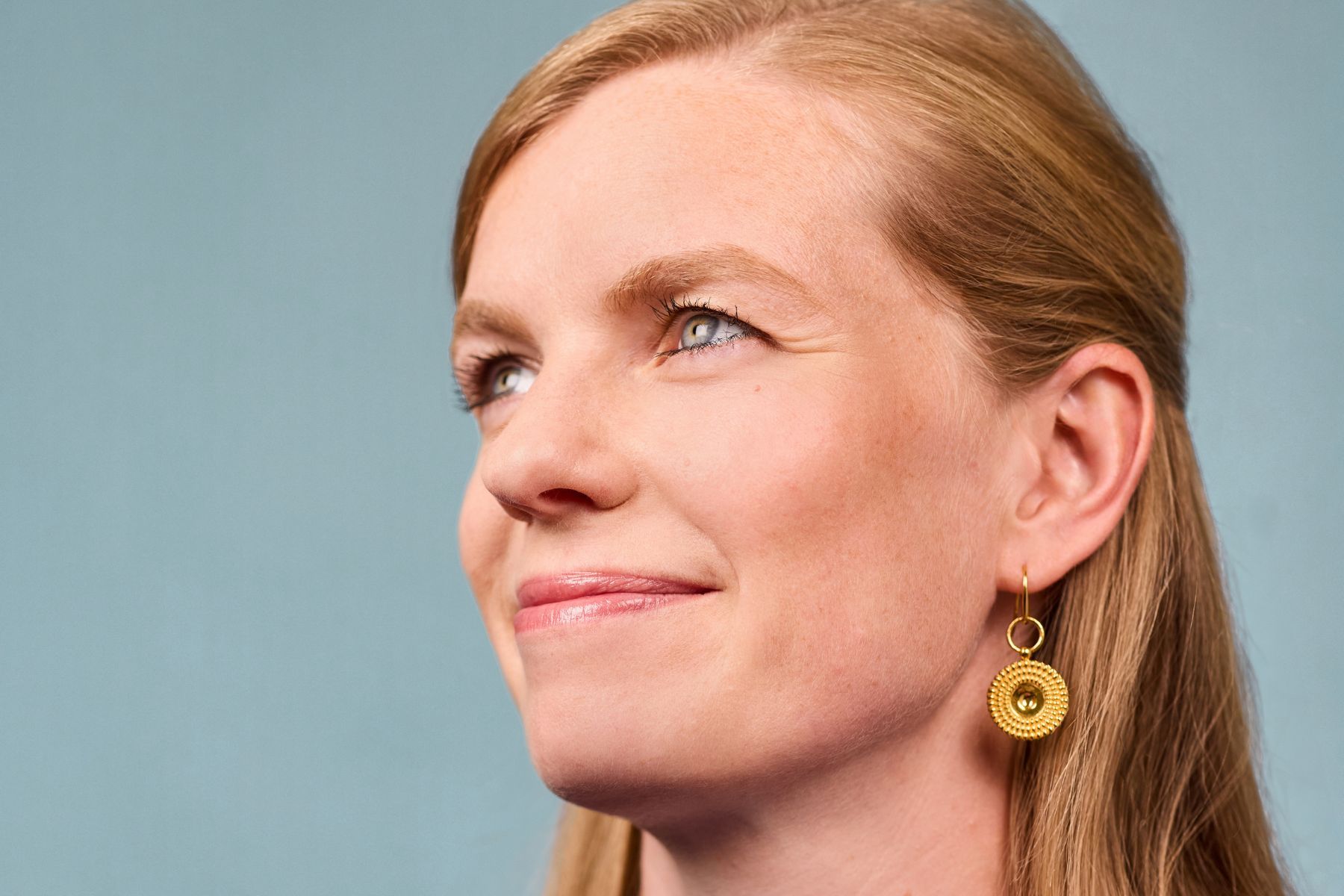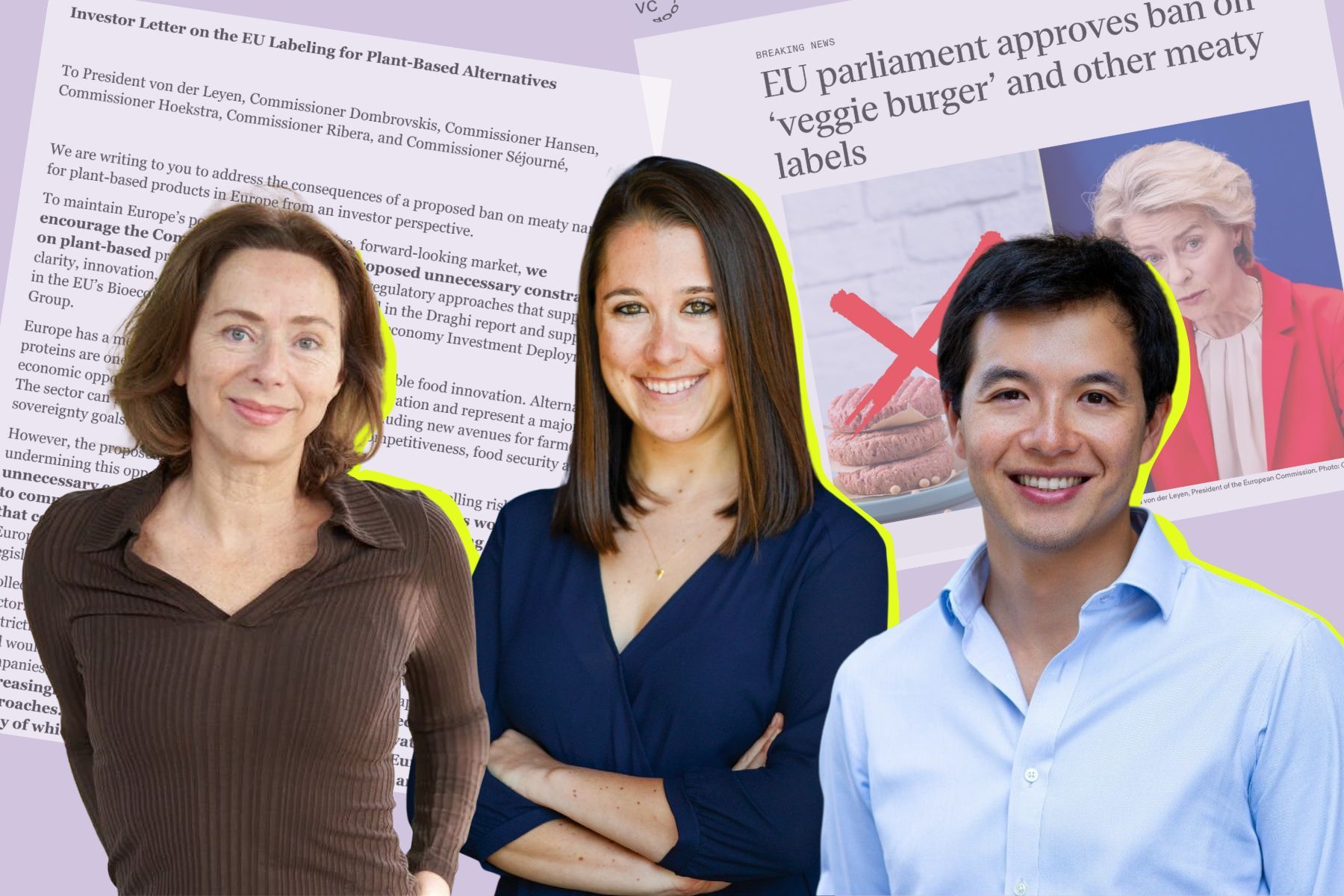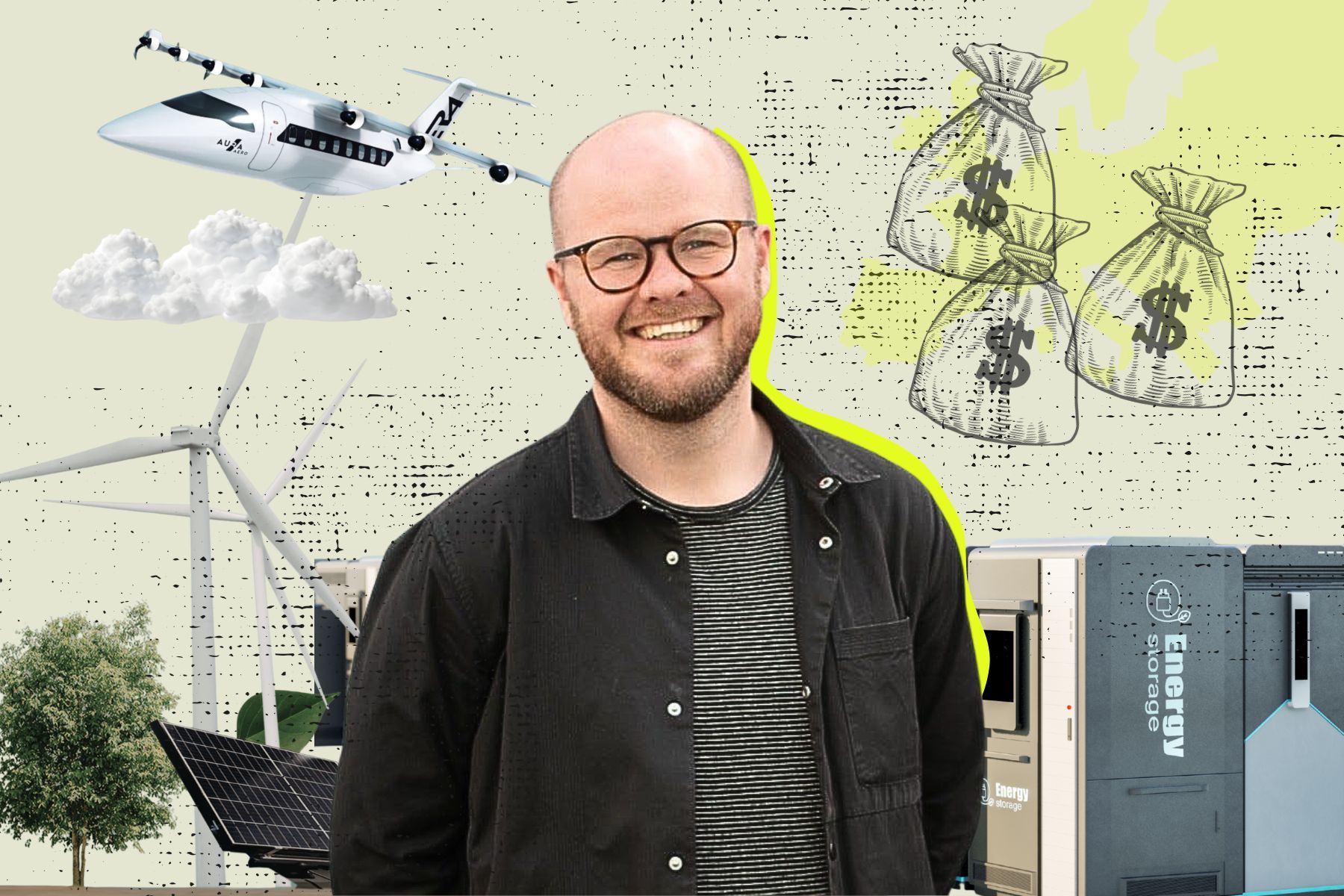Check Warner on tech talent, diversity hushing, and VCs meritocracy myth: 'It's completely wrong'
Ada Ventures founder Check Warner argues that funding the best people and funding inclusively are two sides of the same coin. <br><br>In this exclusive interview, Warner shares why the best talent often goes unseen, what venture capital can do to change that, and why she remains optimistic despite the global backlash against DEI.
.png)

The "VC meritocracy myth" – the assumption that the venture capital industry is a fair system where only the best ideas and most talented founders receive funding, when in reality, it is heavily influenced by bias, privilege, and the corridors of power.
When Impact Loop asked 20VC founder and podcast host Harry Stebbings recently why most of the 100+ founders he invests in are white and male, his answer was this:
“I actively try to get the best people. I don't try to get more women or more dropouts or more Asian people or more Buddhists. I don't because that would be discriminatory against everyone else. I will try and get the best people.”
To some, it might sound reasonable. To others, it’s a glaring example of tech’s diversity problem.
“It’s completely wrong to think that DEI [diversity, equity, and inclusion] and meritocracy are in conflict,” Check Warner, co-founder of London-based Ada Ventures, tells Impact Loop in an interview.
“The very best founders, the best talent can come from every background, in every community,” says Warner. “The question is whether they get a seat at the table.”
Statistics suggest that women and people of colour in tech are largely absent from that table.
A report from the Founders Forum Group this year found that of the $289 billion in VC money invested globally in 2024, just 2.3% went to female-only founding teams ($6.7 billion). Just over 14% went to mixed-gender founding teams, while all-male teams took the lion’s share at 83.6%.
Meanwhile, black founders in the UK overall received just 0.23% of venture funds in 2018, despite making up 4% of Britain’s population. In the US, Black-founded startups raised about 0.4% of venture funds in 2024, despite making up around 13% of the population, according to Crunchbase data.
Venture capital, Warner says, needs to confront who gets “in the room” and who never gets the chance to pitch.
And often that chance hinges on who you know. One study from 2019 found that British women founders were 13 times more likely to get funding through a warm introduction. But without those intros, and the networks behind them, many of the “best people” don’t get a foot through the door.
Missing the next unicorn founder
Warner believes that VCs have a responsibility to participate in what she calls “inclusive investing.” And she says that those who don’t will also miss out on the best people, bigger returns, and possibly even the next unicorn founder.
Diverse founding teams have been consistently shown to outperform homogenous ones. Meanwhile, countless studies have found that inclusive companies generally attract better talent. Ada Ventures has also done some research of its own.
The firm recently partnered with behavioural scientists at Synaptiq to study the speech and communication patterns of 172 unicorn founders across the UK, Europe, and North America.
Researchers found that 141 out of 159 measured psychological traits showed no meaningful difference between diverse and non-diverse founders. Resilience under pressure, analytical thinking, inclusive leadership, and positivity were consistent across the board.
The findings, perhaps obviously, suggest that unicorn founders share an overwhelming number of traits, regardless of their gender, ethnic identity, or socioeconomic status. “If the traits linked to unicorn success are consistent across background, then the funding gap isn’t about potential,” says Warner. “It’s about perception.”
Disrupting the boy’s club
Warner, who started her career in advertising after a stint in playwright directing, was first struck by tech’s patriarchy when she got her first job at an investment firm in London.
“I was sitting around a board room with 35 white men,” she recalls. “I was shocked that this was how we were funding the future.”
Six of the ten most valuable companies in the world today – including Google, Apple, and Microsoft – were backed by venture capitalists.
“I realised that what we fund and who allocates that capital has an outsized influence on what billions of people will be doing in twenty years time,” says Warner.
For the last 10 years, the entrepreneur has been banging on the doors of tech’s establishment. She’s founded initiatives like Future VC, Diversity VC, and, most recently, Ada Ventures – work that has earned her an MBE for services to diversity and inclusion in the industry.
Ada Ventures, whom Warner co-founded in 2020 with tech investor Matt Penneycard, was named after computing pioneer Ada Lovelace – the 19th-century mathematician who wrote the first computer algorithm, yet whose genius went largely unrecognised until decades after her death.
Ada has program for founders that allots 40 hours of free emergency childcare. "We don't want having young children to be a barrier for entrepreneurs," says Warner.
“From the very beginning, we wanted inclusion baked into everything – how we find founders, how we support them, how we select them,” Warner explains. “We believed it would drive better returns for our investors. And it has.”
Finding the best (hidden) talent
Ada’s sourcing model is unlike most in VC. The firm works with a network of 120 “community scouts” spread across the UK and northern Europe – many of whom don’t have a background in VC.
“They’re not your typical Sequoia scouts,” Warner says. “They’re people who’ve built local tech communities or meetups or Whatsapp groups. We’re enfranchising them to become future fund managers, while also helping us find talent before everyone else does.”
It seems to be working: a third of Ada’s deals have come through this network, and those companies generally outperform the rest of the portfolio, says Warner. Several of the scouts have also gone on to start their own funds.
Ada’s portfolio spans the verticals of climate equity, healthy ageing, and economic empowerment, all areas where Warner sees both social need and market opportunity. Recent investments include Valla, an AI-first legal tech startup helping people access affordable legal support, and another company, still in stealth, tackling autoimmune diseases, an area that disproportionately affects women.
Ada Ventures has raised over €110m across two funds so far – growing despite a global walkout on DEI.
The backlash
Warner acknowledges that the past year has been a “strange and hostile time” for diversity, equity, and inclusion – especially in the wake of political shifts in the US and UK.
“People have kind of stopped talking about it,” she says. “But the work is still being done I think. It’s just less branded now.”
She sees a kind of “diversity hushing” – the quiet continuation of DEI work without the labels.
“I’ve even seen people censoring the words ‘women’ or ‘female’ on LinkedIn, because they think the algorithm downranks it,” she says, shaking her head. “It’s madness.”
Still, she believes this period of scrutiny has had one upside: a stronger emphasis on rigour and evidence. “Some DEI practices were too loose,” she admits. “This backlash has forced everyone to raise their standards. That’s good. We should hold ourselves to the same level of robustness as any other investment methodology.”
Despite the culture wars, Warner remains characteristically upbeat about the UK’s potential to lead on inclusive innovation. “The UK has a huge opportunity to be the place that welcomes and embraces talent from all over the world,” she says. “We just don’t communicate that well enough.”
With new visa schemes aiming to attract US tech workers, she thinks Britain could benefit from a wave of global founders. “Many of the people who’ve powered our economy weren’t born here. If we leaned into that, we could become a magnet for entrepreneurial talent.”
Optimism, for Warner, isn’t naive – it’s strategic. “We’re doing this work not because it’s fashionable, but because it’s the right thing to do,” she says. “And because it delivers the best returns.”
She pauses. “Talent is everywhere but opportunity isn’t. Our job is to close that gap.”
Get full access to Europe's new platform for impact news
- Quality journalism, interviews, investor profiles and deep-dives
- Daily newsletter with top stories, latest funding rounds and roundup to keep you in the loop
Keep reading – get in the loop!
- Håll dig i loopen med vårt dagliga nyhetsbrev (gratis!)
- Full tillgång till daglig kvalitetsjournalistik med allt du behöver veta inom impact
- Affärsnätverk för entreprenörer och investerare med månatliga meetups
Fortsätt läsa – kom in i loopen!
- Håll dig i loopen med vårt dagliga nyhetsbrev (gratis)!
- Full tillgång till daglig kvalitetsjournalistik med allt du behöver veta inom impact
- Affärsnätverk för entreprenörer och investerare med månatliga meetups









